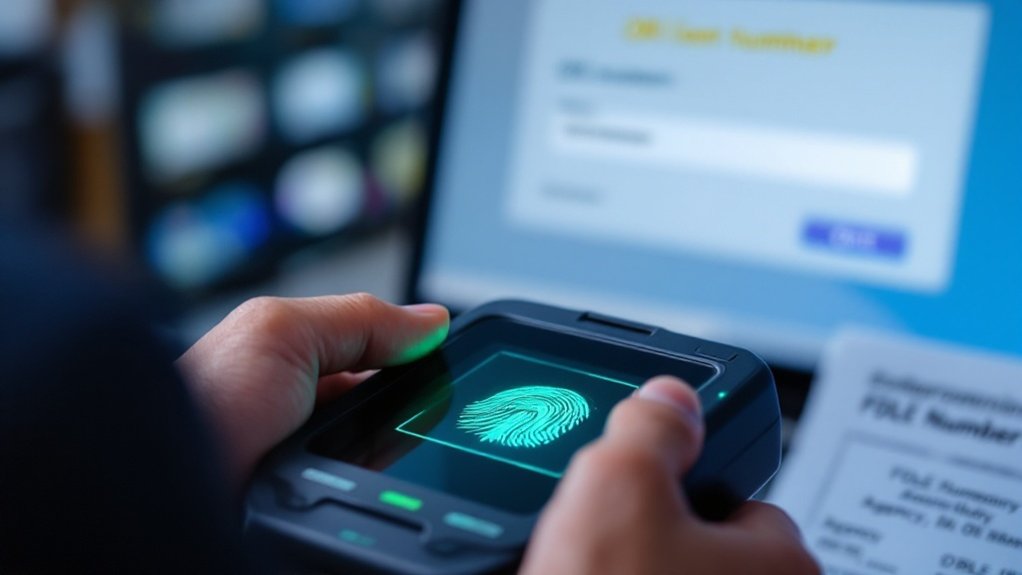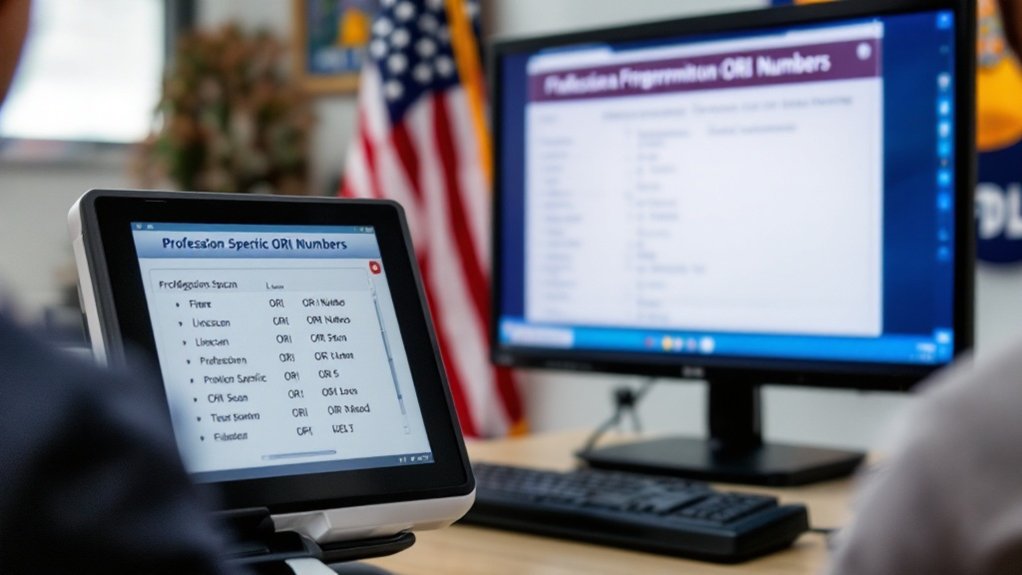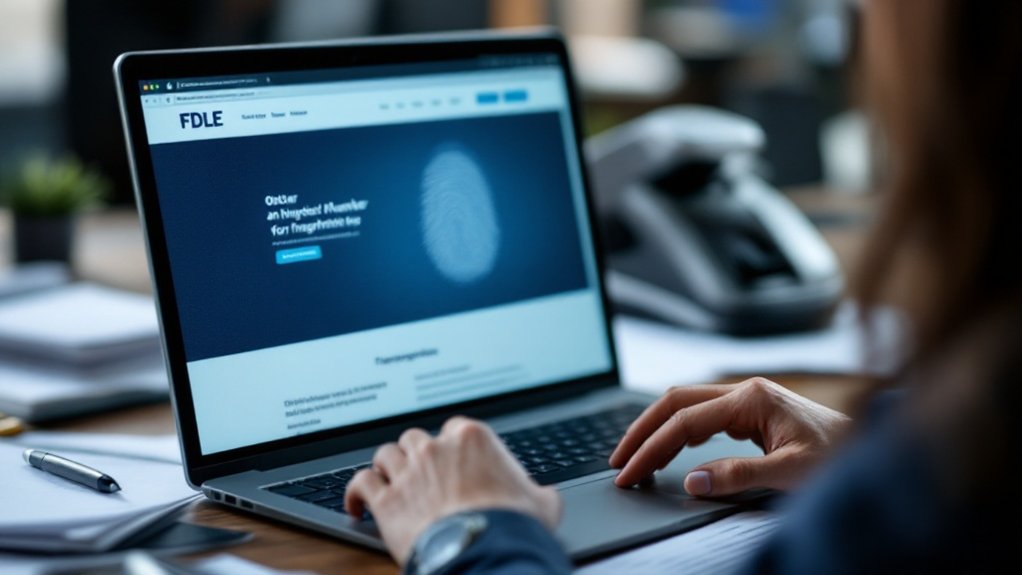To obtain an ORI number for FDLE fingerprinting, you’ll typically need to contact the agency or organization requesting the background check. They will provide you with the necessary ORI number, which is vital for ensuring your fingerprint results are sent to the correct agency. This process is often part of the application for licenses or employment requiring a Level 2 background check. For more specific guidance and details on the process, you can explore further how ORI numbers are used in different contexts.
Understanding ORI Numbers and Their Purpose

Understanding ORI numbers is pivotal for traversing the fingerprinting process, especially when dealing with Level 2 background checks. An ORI number, or Originating Agency Identifier, is a unique identifier assigned to agencies for fingerprinting services. It helps identify which agency is requesting fingerprints and where the results should be sent. Typically a nine-character identifier, ORI numbers are assigned by the FBI or state agencies like the FDLE. You’ll need an ORI number for Level 2 background checks and Livescan fingerprinting, as it guarantees compliance with regulations and directs results to the correct agency. This identifier is essential for managing and directing fingerprint data between agencies. The assignment of an ORI number requires that an agency meet specific qualifying criteria, ensuring that only authorized entities can access and manage sensitive information.
Obtaining an ORI Number for FDLE Fingerprinting
To obtain an ORI number for FDLE fingerprinting, you typically need to get it from the agency or organization requesting your background check. This could be your employer, a volunteer organization, or a regulatory agency if you’re applying for a license. Florida agencies like DCF, AHCA, and DOEA can assist with obtaining an ORI number if needed. In some cases, a VECHS number may be used instead.
Once you have your ORI number, you can proceed with scheduling a Livescan appointment. Guarantee you provide the ORI number to the Livescan provider and bring required identification. This process ensures your fingerprint results are sent to the correct agency, which is vital for completing background checks efficiently.
Profession-Specific ORI Numbers in Florida

When you’re applying for a license or job in Florida that requires a background check, you’ll need a profession-specific ORI number for FDLE fingerprinting. This number is vital for various professions, ensuring compliance with state regulations.
- Certified Nursing Assistant by Exam: EDOH0380Z
- Physician/Medical Doctor: EDOH2014Z
- Real Estate Sales and Broker: FL920010Z
- Home Inspectors: FL924250Z
- Community Association Managers: FL921932Z
These ORI numbers help streamline the fingerprinting process, making it easier to complete your application. For individuals or businesses needing assistance with ORI numbers not listed, such as fingerprint services, contacting a professional service like Plancher Security can provide necessary support.
The Role of ORI Numbers in the Fingerprinting Process
As you navigate the fingerprinting process for a background check in Florida, the Originating Agency Identifier (ORI) number plays a pivotal role. It guarantees that your fingerprint results are sent to the correct agency or department, streamlining the background check process. The ORI number is included on FBI fingerprint cards and used in electronic fingerprinting to direct results accurately.
In Florida, ORI numbers are indispensable for Level 2 background checks conducted by the FDLE. They help identify which agency is responsible for processing the fingerprint request and confirm adherence to state laws. By precisely entering the ORI number, you can prevent delays in your application process. Additionally, the ORI number ensures that the results are directed to the correct department, such as a potential employer or relevant state department, which is crucial for a smooth and accurate background check process involving O Numbers.
Troubleshooting Common Issues With ORI Numbers**

Troubleshooting common issues with ORI numbers involves addressing several key challenges that can arise during the fingerprinting process. Incorrect usage of ORI numbers can lead to application denials and require resubmission without refunds. To resolve these issues efficiently:
- Verify ORI Accuracy: Guarantee the correct ORI number is used for each application.
- Contact Authorities: Reach out to local police or NCIC for assistance.
- Resubmit Applications: Withdraw and resubmit applications with the correct ORI.
- Fingerprint Transfer: Transfer fingerprint records if necessary.
- Follow-Up Guidance: Seek guidance from the Firearms Investigator for further assistance. Additionally, ensuring that technical systems are updated with features like HDR Support can help streamline processes by improving visual clarity and overall user experience.
Conclusion
You’ve successfully navigated obtaining an ORI number for FDLE fingerprinting. Interestingly, FDLE retains fingerprint results for just six months, highlighting the significance of timely application submission. With thousands of background checks processed daily, ensuring accurate ORI numbers is important for efficient processing. This streamlined process helps you avoid delays and facilitates your application moving forward smoothly.

